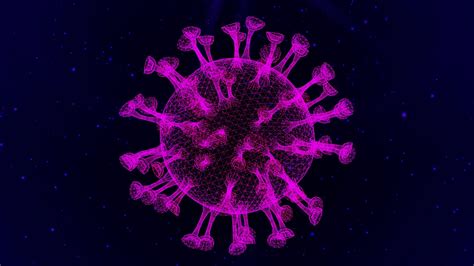Intro
New Covid Variant Alert: Latest outbreak updates, symptoms, and vaccine efficacy against emerging Covid-19 strains, mutations, and coronavirus variants.
The world has been grappling with the COVID-19 pandemic for over two years now, and just when we thought we were making progress in containing the virus, a new variant emerges to pose a fresh threat. The latest variant, known as Omicron, has been making headlines worldwide, and health experts are scrambling to understand its implications. As the situation continues to unfold, it's essential to stay informed about the latest developments and take necessary precautions to protect ourselves and our loved ones. In this article, we'll delve into the details of the new COVID variant, its characteristics, and what we can do to stay safe.
The COVID-19 pandemic has been a stark reminder of the interconnectedness of our world and the importance of global cooperation in tackling health crises. The rapid spread of the virus has highlighted the need for swift and decisive action, as well as the importance of staying vigilant and adaptable in the face of emerging threats. As we navigate the complexities of the pandemic, it's crucial to separate fact from fiction and rely on credible sources of information to guide our decisions. By doing so, we can work together to mitigate the impact of the virus and build a safer, healthier future for all.
The emergence of new COVID variants is a natural consequence of the virus's evolution, and it's essential to understand the underlying mechanisms that drive this process. The COVID-19 virus is a type of coronavirus, which is a large family of viruses that can cause a range of illnesses, from the common cold to more severe diseases like SARS and MERS. The virus's genetic material is composed of RNA, which is prone to mutations as it replicates. These mutations can result in changes to the virus's surface proteins, allowing it to evade the immune system and potentially leading to increased transmissibility or severity.
New Covid Variant Characteristics

The new COVID variant, Omicron, has been identified as a variant of concern by the World Health Organization (WHO). It's characterized by a large number of mutations, including several changes to the virus's spike protein, which is the primary target of the immune system. These mutations have raised concerns about the variant's potential to evade existing vaccines and treatments, as well as its possible increased transmissibility. While the full implications of Omicron are still being studied, early reports suggest that it may be more contagious than previous variants, although its severity is still unclear.
Understanding the Mutations
The mutations associated with Omicron are primarily located in the virus's spike protein, which is responsible for binding to host cells and facilitating entry. These changes have been shown to increase the virus's affinity for human cells, potentially leading to enhanced transmissibility. Additionally, some of the mutations may help the virus evade neutralizing antibodies, which are a key component of the immune response. However, it's essential to note that the immune system has multiple layers of defense, and other components, such as T cells, may still be effective against the variant.Global Response to the New Variant

The global response to the new COVID variant has been swift and coordinated, with health authorities and governments around the world taking immediate action to mitigate its spread. Travel restrictions, mask mandates, and increased testing have been implemented in many countries, while vaccine manufacturers are working to develop updated vaccines and boosters. The WHO has also issued guidance on the variant, emphasizing the importance of continued vigilance and adherence to public health measures.
Role of Vaccination
Vaccination remains a critical component of the global response to COVID-19, and it's essential to continue promoting vaccine uptake and development. While the new variant may pose challenges to existing vaccines, it's likely that they will still offer some level of protection, particularly against severe disease. Booster shots and updated vaccines may be necessary to maintain immunity, and researchers are working to develop vaccines that can target multiple variants simultaneously.Prevention and Precautions

As the situation with the new COVID variant continues to evolve, it's essential to take preventive measures to protect ourselves and our communities. Here are some key precautions to keep in mind:
- Wear masks in public places, especially in areas with high transmission rates
- Practice social distancing and avoid large gatherings
- Wash hands frequently with soap and water
- Get vaccinated and stay up to date with booster shots
- Avoid travel to areas with high transmission rates
- Stay informed about local health guidelines and follow official advice
Importance of Mental Health
The COVID-19 pandemic has taken a significant toll on mental health, with many people experiencing anxiety, depression, and isolation. It's essential to prioritize mental well-being, particularly during times of uncertainty and stress. Engaging in activities that promote relaxation and stress reduction, such as exercise, meditation, or spending time in nature, can help mitigate the impact of the pandemic on mental health.Economic Impacts of the New Variant

The new COVID variant has significant economic implications, particularly for industries that rely on international travel and trade. The implementation of travel restrictions and border closures can have a devastating impact on tourism, aviation, and other sectors. Additionally, the variant may lead to increased absenteeism and reduced productivity, as people take time off work to care for themselves or loved ones.
Supporting Small Businesses
Small businesses and entrepreneurs have been disproportionately affected by the pandemic, and it's essential to provide support and resources to help them navigate the challenges posed by the new variant. Governments and organizations can offer financial assistance, such as loans and grants, as well as provide guidance on how to adapt to changing circumstances.Conclusion and Next Steps

As we move forward in the face of the new COVID variant, it's essential to remain vigilant, adaptable, and informed. By working together and taking collective action, we can mitigate the impact of the variant and build a safer, healthier future for all. We must continue to prioritize vaccination, prevention, and precautions, while also supporting those affected by the pandemic and promoting economic recovery.
Final Thoughts
The emergence of the new COVID variant is a stark reminder of the ongoing challenges posed by the pandemic. However, it's also an opportunity for us to come together, share knowledge, and support one another. By doing so, we can create a more resilient, equitable, and just world, where everyone has access to the resources and opportunities they need to thrive.What is the new COVID variant?
+The new COVID variant, Omicron, is a variant of concern identified by the World Health Organization (WHO). It's characterized by a large number of mutations, including several changes to the virus's spike protein.
How contagious is the new variant?
+Early reports suggest that the new variant may be more contagious than previous variants, although its severity is still unclear. The variant's mutations have raised concerns about its potential to evade existing vaccines and treatments.
What can I do to protect myself?
+To protect yourself, continue to follow public health guidelines, such as wearing masks, practicing social distancing, and getting vaccinated. Stay informed about local health guidelines and follow official advice.
We invite you to share your thoughts, questions, and concerns about the new COVID variant in the comments below. Let's work together to create a safer, healthier world for all. Share this article with your friends and family to help spread awareness and promote preventive measures. Stay informed, stay vigilant, and let's navigate this challenging time together.
